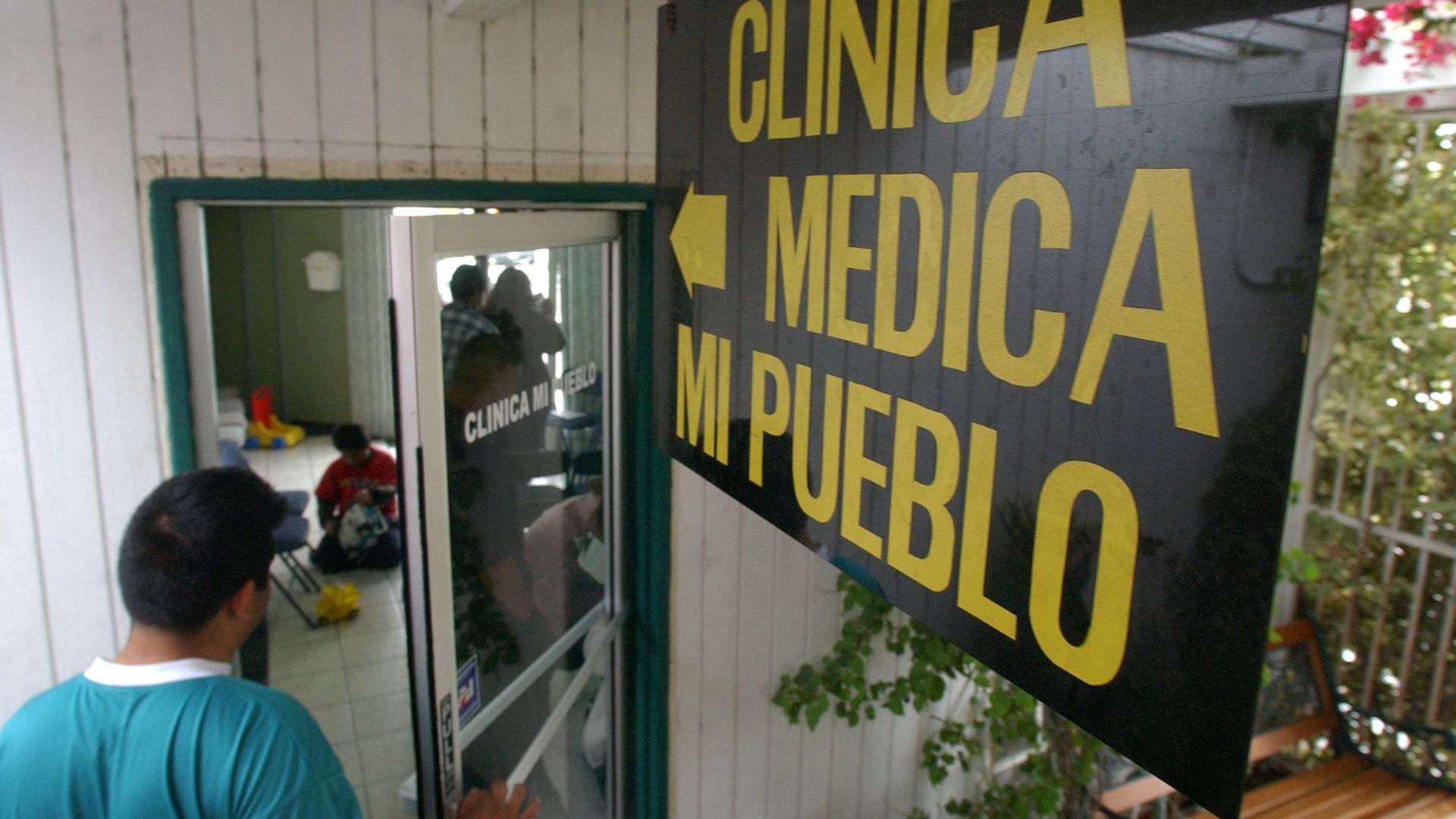Jun 10, 2019
California to expand health insurance to some undocumented immigrants
Add Axios as your preferred source to
see more of our stories on Google.

Clinica Mi Pueblo in Anaheim, California. Photo: Geraldine Wilkins/Los Angeles Times via Getty Images
